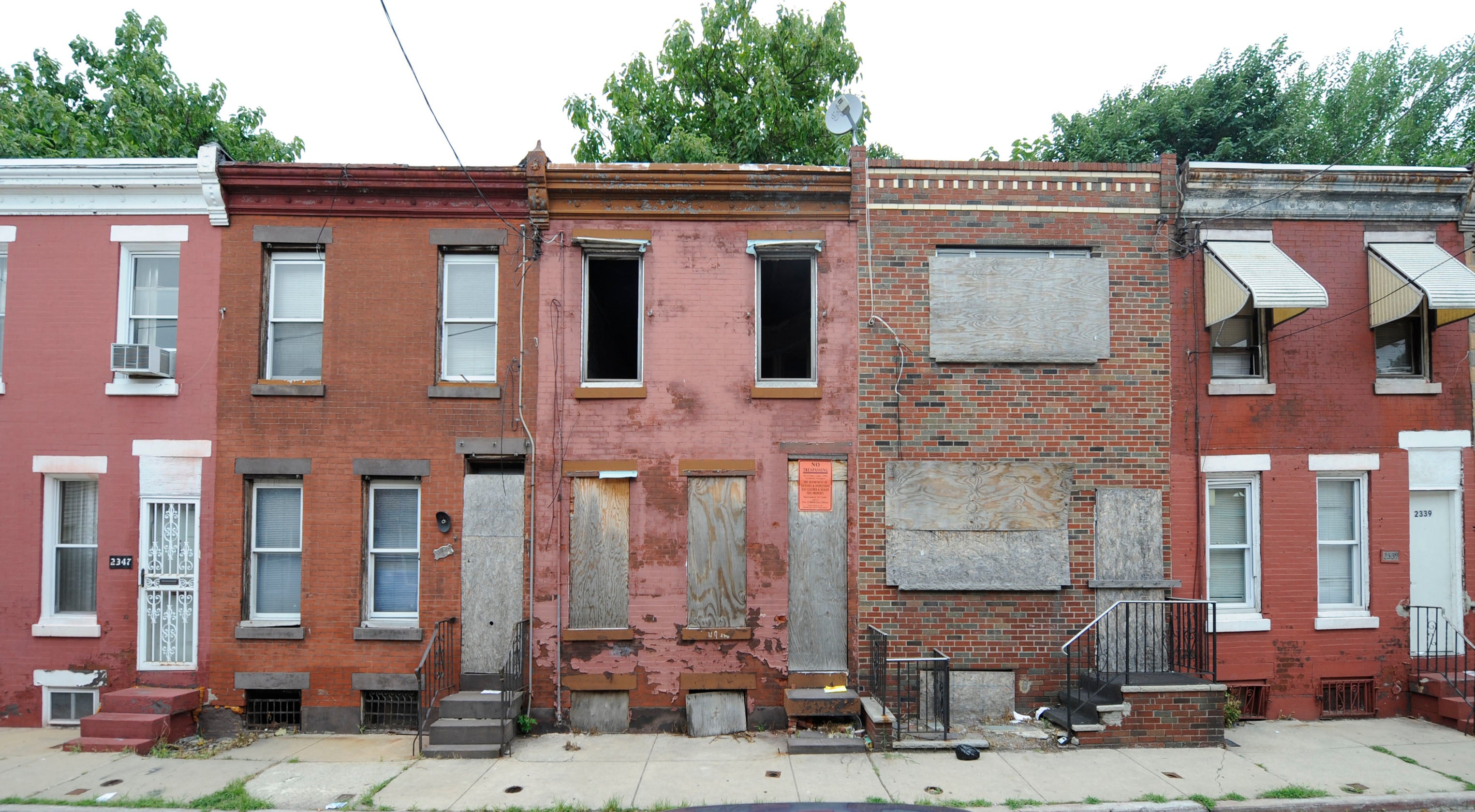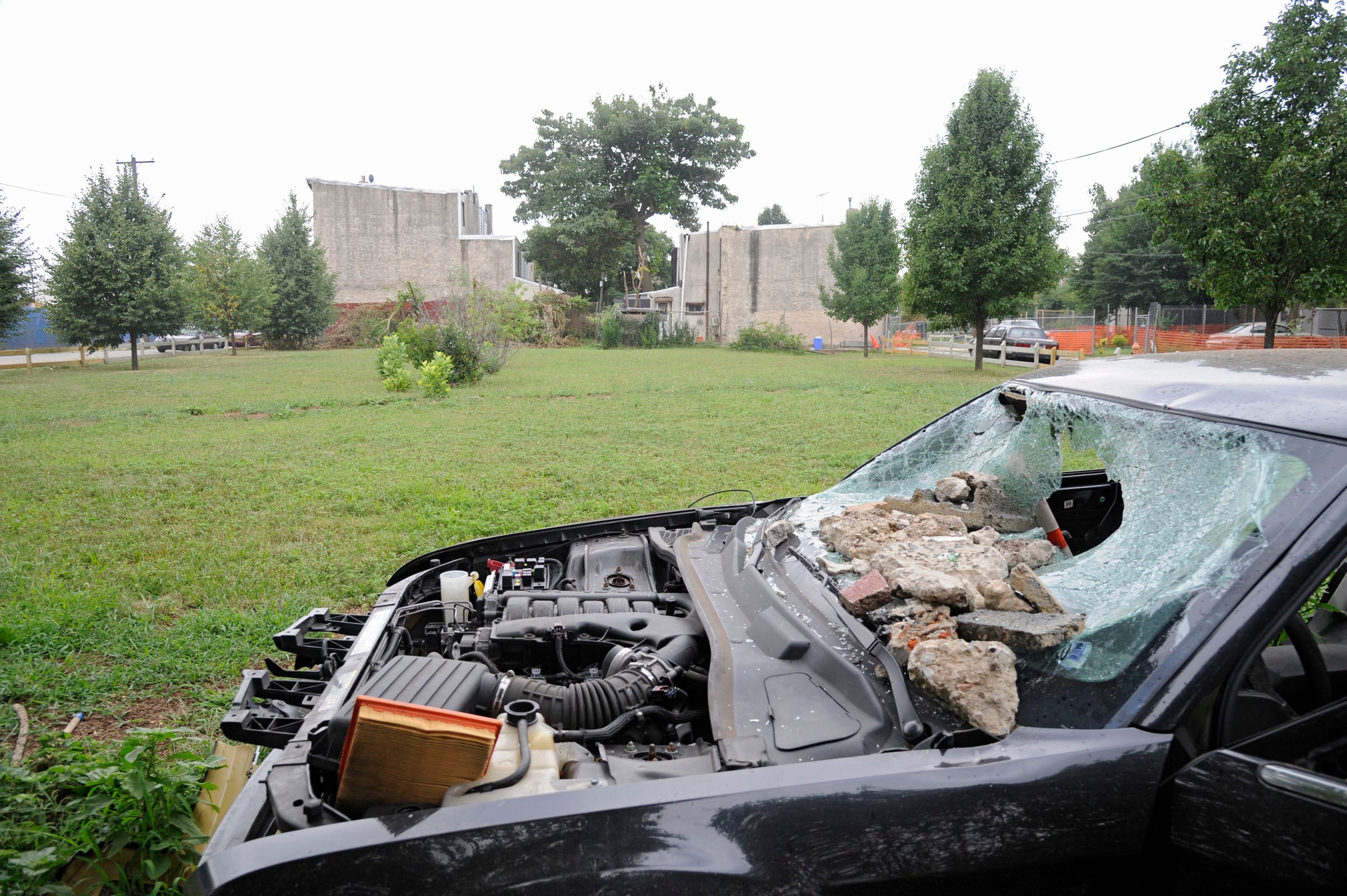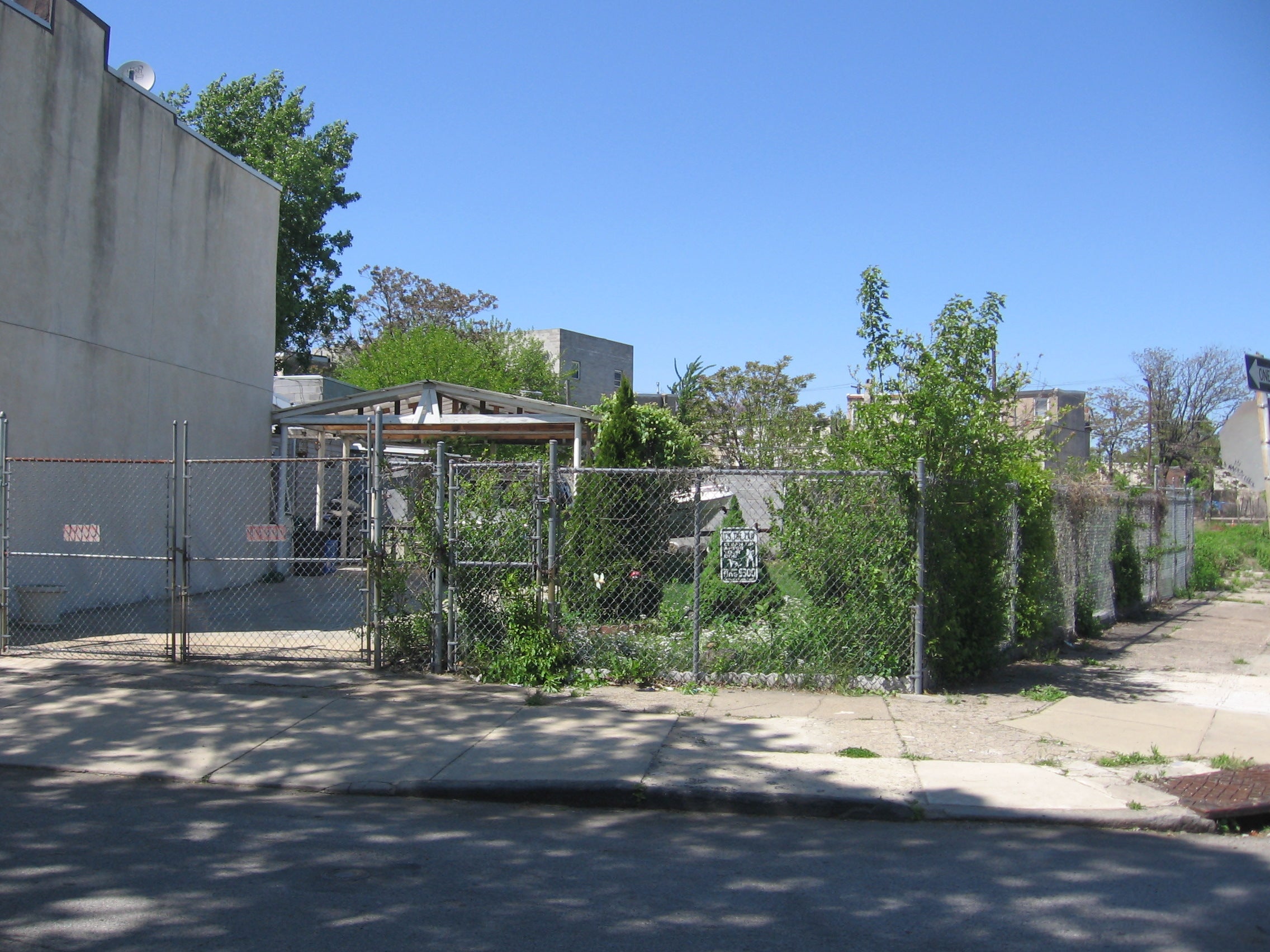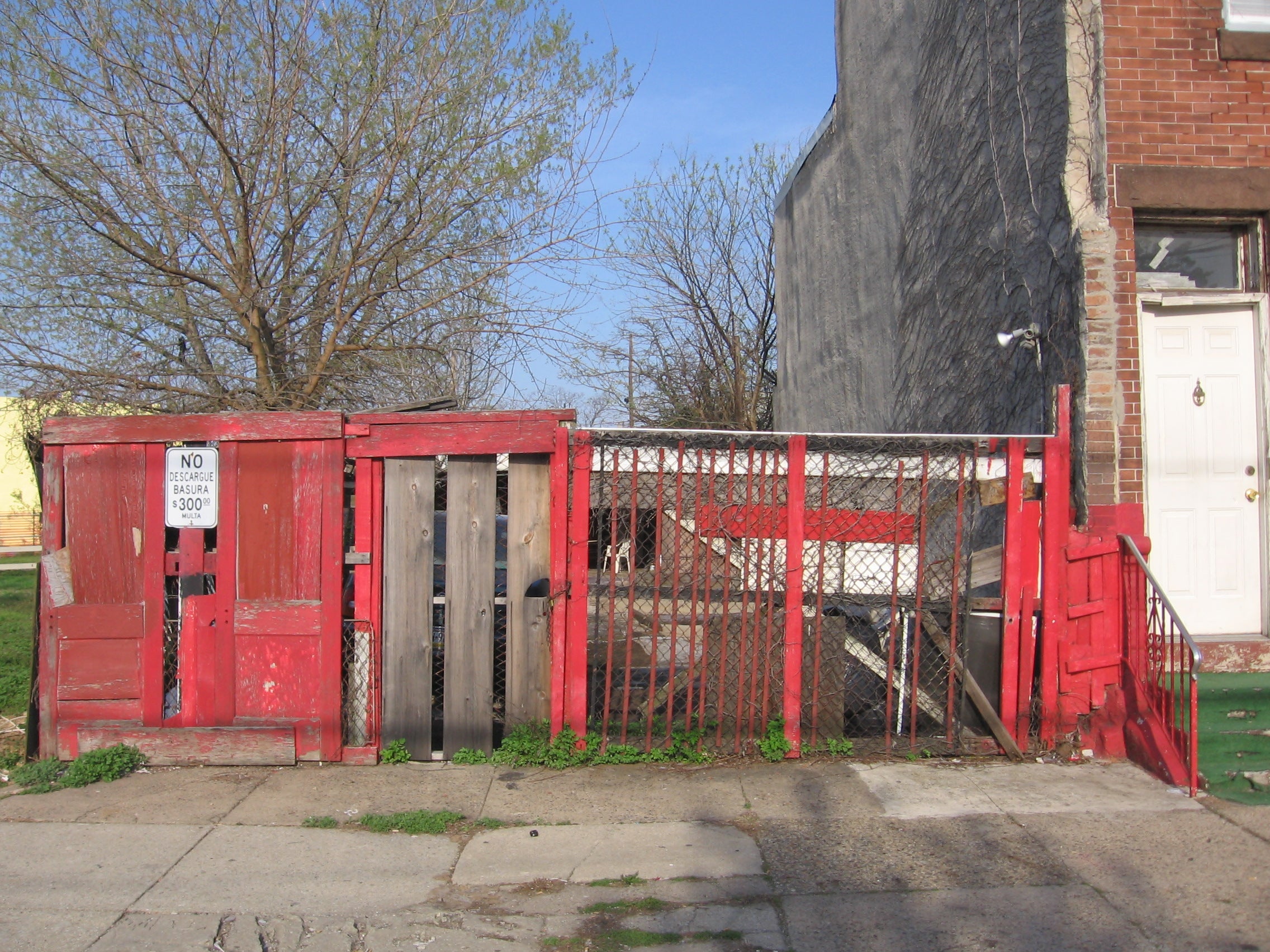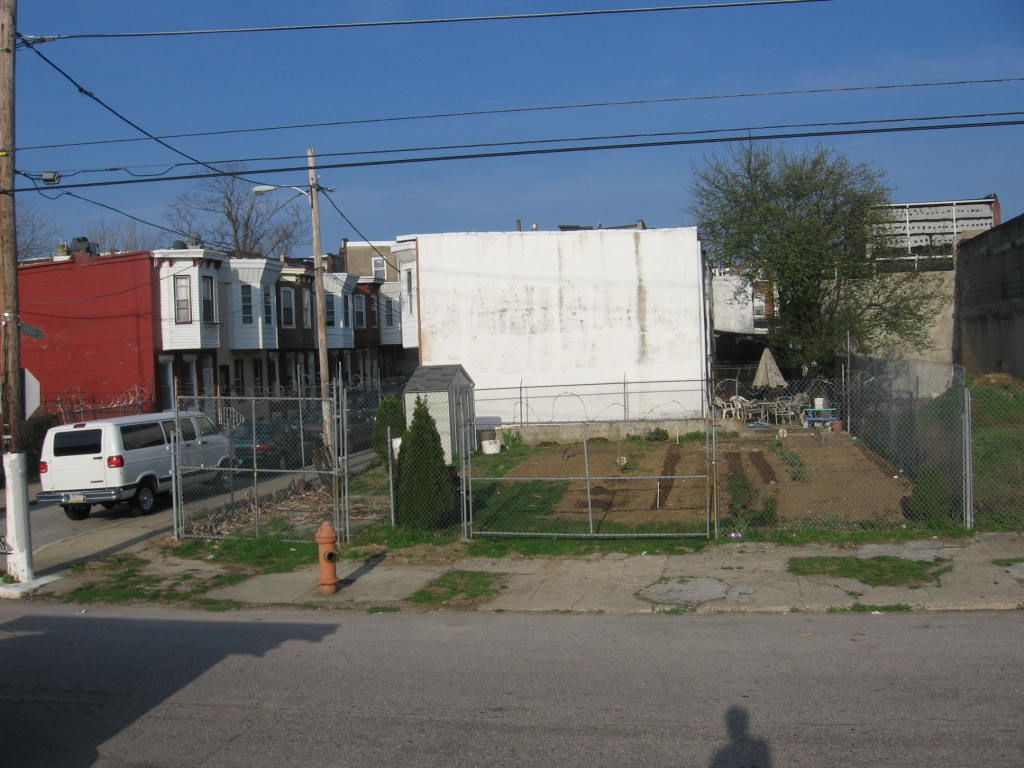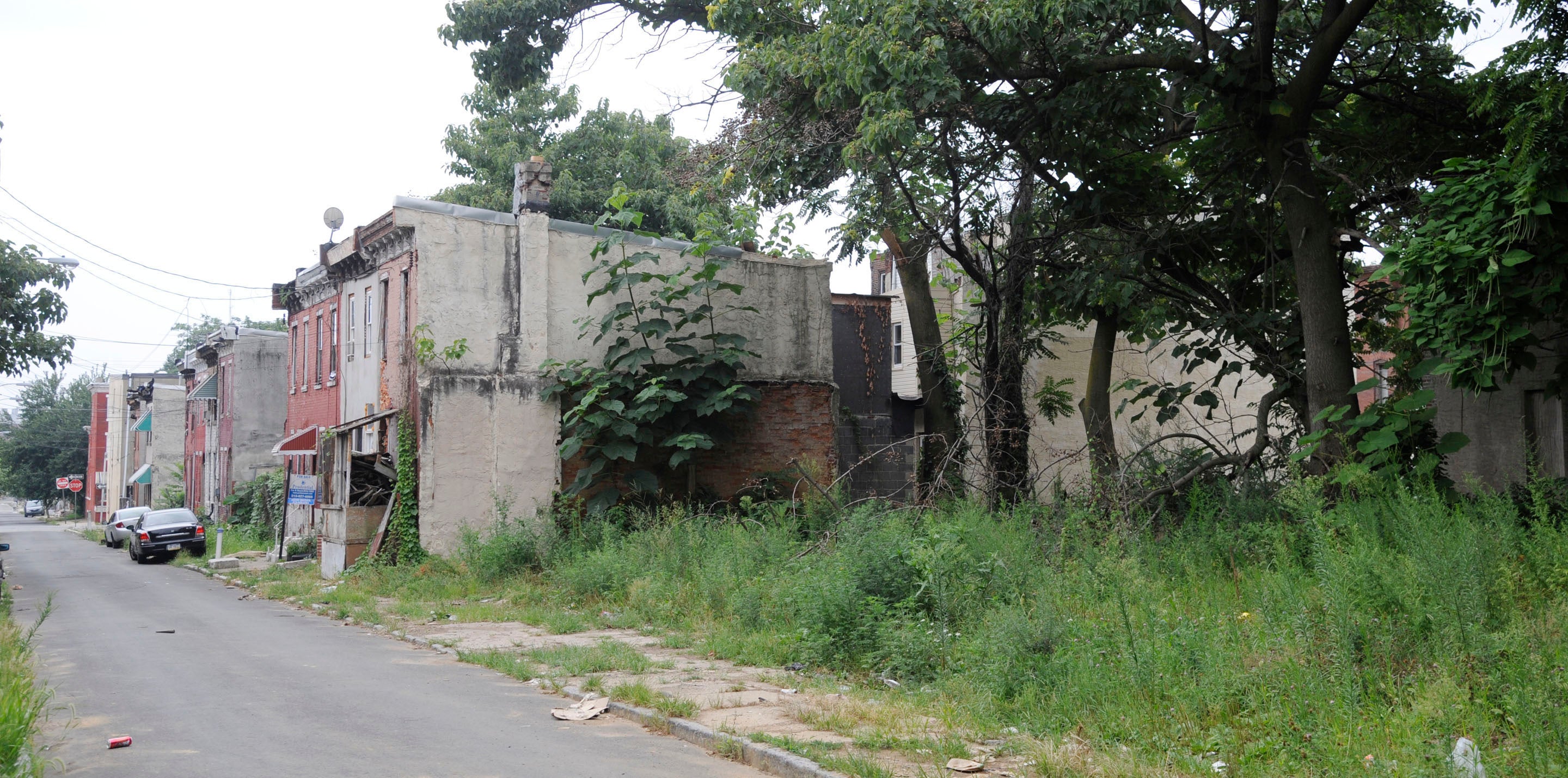Should city bank on land bills that finally lay down the law?
For decades, Philadelphia’s city government has struggled to cope with an abundance of vacant land and chronic tax delinquency, two closely related problems that have fueled blight and depressed property values in neighborhoods across the city.
Last month, a pair of breathtakingly ambitious ordinances were introduced in City Council that aim to upend the city’s approach to vacant land and tax delinquencies. If adopted, the bills would create a powerful new agency, a land bank, and give it the authority to snap up tax delinquent properties as it chooses.
Just as critically, the law would compel the city to foreclose on or seize tax delinquent property within one year. That reform alone would have a massive effect on the city’s real estate market: there are more than 100,000 tax delinquent properties in Philadelphia, or roughly 19 percent of all parcels in the city. Philadelphia has the worst property tax collection record of any big city in America, as detailed in a PlanPhilly/Inquirer investigation last year.
Taken together, the two proposed ordinances would amount to a top-to-bottom reinvention of the city’s land management systems.
“I’m extremely frustrated with where the city is, and I’ve only been doing this for four years. I can’t even imagine what people who have been dealing with this for 20 or 30 years must feel like,” said Councilwoman Maria Quiñones-Sánchez, lead sponsor of the land bank bill.
Sánchez said she saw the need to overhaul the city’s vacant land systems in 2008, within her first two months on the job. “There was no thought to it, no strategy,” she said of the city’s approach at the time. “But I also know what our potential is, and I think we can get there.”
Both ordinances seem to have a real shot at passing City Council. But there are some concerns about the bills. For instance, while many developers support the notion of a land bank, others see it as a power grab by a city with a poor track record for managing its land holdings. And the Nutter administration, though open to the land bank concept, warns against moving too quickly, given the scale and complexity of the problems.
One risk, the administration warns, is that the city could just end up stockpiling land that it has little chance of ever selling.
“We have to ask the fundamental question as a city of whether we should be in the real estate business, period. Clearly this is something that’s hard to do and we don’t manage it well over time,” said Managing Director Richard Negrin. “We shouldn’t be a problem in the neighborhood.”
Which explains why the Nutter administration wants to take it slow and demonstrate that it can effectively manage and sell the land it already has, before acquiring any more, Negrin said.
“We’re trying to be thoughtful about the structure of this, and how we create the checks and balances, so that this can be broadly accepted,” Negrin said. “Shame on us if we put this together quickly, and do it in a way where it will get unraveled.”
This much, though, is clear: the existing systems are not doing the job.
Property tax delinquency is an epidemic in the city, one that touches almost every neighborhood, but is most prevalent in low-income neighborhoods where blight and abandonment are commonplace. Most other large cities seize tax delinquent property within a few years, and then either sell it off to the highest bidder at sheriff sale or place it into a land bank.
In Philadelphia, however, tax delinquents frequently are able to avoid sheriff sale for years or even decades. In 2011, property tax delinquents owed the city and cash-strapped School District of Philadelphia $472 million in unpaid taxes, penalties and interest.
The city’s system for managing vacant land that it already owns is equally troubled. The 13,000 parcels under city control are split between five different departments and agencies, each with different policies and priorities. Developers say the system is opaque, confusing and – because of the frequent delays – expensive. All of which makes it harder for builders – nonprofit and for-profit alike – to redevelop vacant land.
The tax delinquency ordinance now in City Council would require the city to “commence foreclosure proceedings” on all properties that have been tax delinquent for a year, unless the property owner is in a payment plan. The shortened foreclosure timeline would represent a huge departure from business as usual: an analysis of delinquency records found that past due properties owe an average of 6.5 years worth of property taxes.
The proposed ordinance also overhauls the city’s tax delinquency notification system, and creates a new and more lenient set of repayment agreements. Property owners who breach their payment agreements – which happens frequently – would be out of luck. The ordinance requires the city begin foreclosure proceedings against payment agreement violators within 90 days.
“Hopefully this will make it easier for people to pay their taxes, and if they don’t this will allow us to put the land bank into productive use,” said Councilman Bill Green, who introduced the delinquency bill in response to last year’s PlanPhilly/Inquirer investigation. “Even if we can only sell some of these properties for $1, we get a new owner in there who’s willing to pay the taxes.”
And yet, given the enormous backlog of tax delinquent properties, it is not clear that Green’s bill is practical. Selling off more than 100,000 parcels in a single year could be too much for the city’s systems to handle, and might well have a negative effect on the real estate market in those neighborhoods where tax delinquent properties are abundant.
“It is is going to mean that a lot of properties come into the system at the beginning. But over time it’s going to mean we never get in this situation again,” Green said. “We’re going to be paying for past sins as we implement this, but have to say ‘enough, it’s time fx it.’”
When asked for comment on Green’s bill – which has 10 council cosponsors – the Nutter administration said only that it was working with the Councilman on his proposal. Green, though, characterized the Nutter administration as disinterested. “What the administration is saying to us about this bill is their current system works.”
You will get no argument from the Nutter administration on the failings of the city’s vacant land management, however. For more than a year and a half, the city’s land-owning departments and agencies have been crafting a new strategy for selling off vacant property, which has already been detailed in press reports.
Most builders and community nonprofits consider those pending changes an improvement over the status quo, but some are disappointed the plan does not go further and create a full-fledged land bank, as Councilwoman Sánchez has proposed.
“This is an incredibly complex problem, and all of the fixes we’re talking about are a heavy, heavy lift. And if it wasn’t, they would have been fixed a long time ago, because vacant land has been a problem for 40 years,” said Negrin, when asked why the administration’s reforms do not go farther.
Deputy Managing Director Bridget Collins-Greenwald, who has coordinated the city’s new plan, likens it to a “virtual” land bank. Although properties will continue to be owned by a number of different agencies, the administration is creating a “Front Door,” or single point of contact, where would-be buyers can go to acquire many of the properties in the city’s inventory.
Collins-Greenwald will soon be named the city’s new Property Commissioner, Negrin said. That will put her at the head of one of the city’s largest land-owning departments, and will keep the vacant land issue front and center, Negrin said.
The draft policy formalizes the role of councilmanic privilege, the practice of district council members having veto authority over the sale of city land in their districts. But it also seeks to dispel some of the mystery that surrounds council member’s development decisions.
For instance, under the Nutter administration’s draft plan, council members would be required to publicly state why they are rejecting a buyer’s bid. And council members would get only 30 days to approve or deny a sale. Rejected bids, and the reasons behind a council members’ opposition to the sale, would be posted online. Rejected buyers would get a chance to appeal, as well, after addressing the council member’s concerns.
“We like that council review would be early in the process, that there’s a chance to appeal, and that the reasons for a denial are public,” said Anne Fadullon, vice chairman of the Building Industry Association of Philadelphia, a development advocacy group. “Hopefully that means that if patterns start to develop with council members that aren’t in the best interests of Philadelphia those patterns would be revealed.”
The Sánchez land bank bill proposes a similar role for district council members: they would retain the power to shoot down any land bank sale in their district, but would first have to offer up a public explanation for their opposition. Pocket vetoes would not be permitted either: council offices would have 20 days to weigh in on a sale, according to the proposed legislation.
“People criticize councilmanic prerogative, and it can be used badly, but for every example of a bad decision I can give you hundreds where council members used their political roles to move projects along,” Sánchez said. “How exactly, it will end up working in a land bank is still something we are working out.”
Where the land bank ordinance departs from the Nutter administration’s plan is in its scope and ambition. Instead of creating a front door, the land bank would seize all properties from three of the city’s five landholding agencies, and unify them in a single new entity with a Board of Directors. Board members would be appointed by the mayor, confirmed by City Council, and would include at least three representatives from non-profit community development corporations or civic associations in low-income neighborhoods (where the vast majority of city-owned vacant land is concentrated).
In addition, the land bank would have the power to acquire new property, principally by seizing tax delinquent properties before they go to sheriff sale. The city needs state authorization before it can do this, however. State Rep. John Taylor (R., Philadelphia) pushed a land bank bill through the House in February, but it has not yet been acted on by the state Senate.
Sánchez said she would not rush the ordinance, particularly not while the Nutter administration has concerns.
“We don’t want to pass legislation that the administration cannot comply with. This is not going to work without buy-in,” she said.
Green, though, may take a different tack with the delinquency bill. “I don’t believe the administration is willing to take reputational risk. So if we force them to do something, and they have to do it, at least then they can say it’s our fault if it doesn’t work.”
Outside of City Hall, some skeptics question the wisdom of creating yet another city entity to manage land in light of Philadelphia’s poor record and the fact that there has been no discussion about eliminating or scaling back the city agencies that now own vacant property if a land bank is created.
“The government systems have broken down, and now the government is proposing another system, so of course there’s going to be some trepidation,” said Fadullon, the BIA vice chair.
And yet, she said, the notion of a land bank makes sense. And the BIA considers it promising that – for the first time in a long time – serious attention is being paid to vacant land at high levels of city government.
“This is our chance,” Fadullon said. “We should try to take it, and be as hopeful as we can.”
Contact Patrick Kerkstra at pkerkstra@planphilly.com or follow him on Twitter at Twitter.com/pkerkstra
This story is part of a continuing collaboration between PlanPhilly and The Inquirer. Last August that effort produced a two-day series on the tax-delinquency crisis in Philadelphia.
WHYY is your source for fact-based, in-depth journalism and information. As a nonprofit organization, we rely on financial support from readers like you. Please give today.



